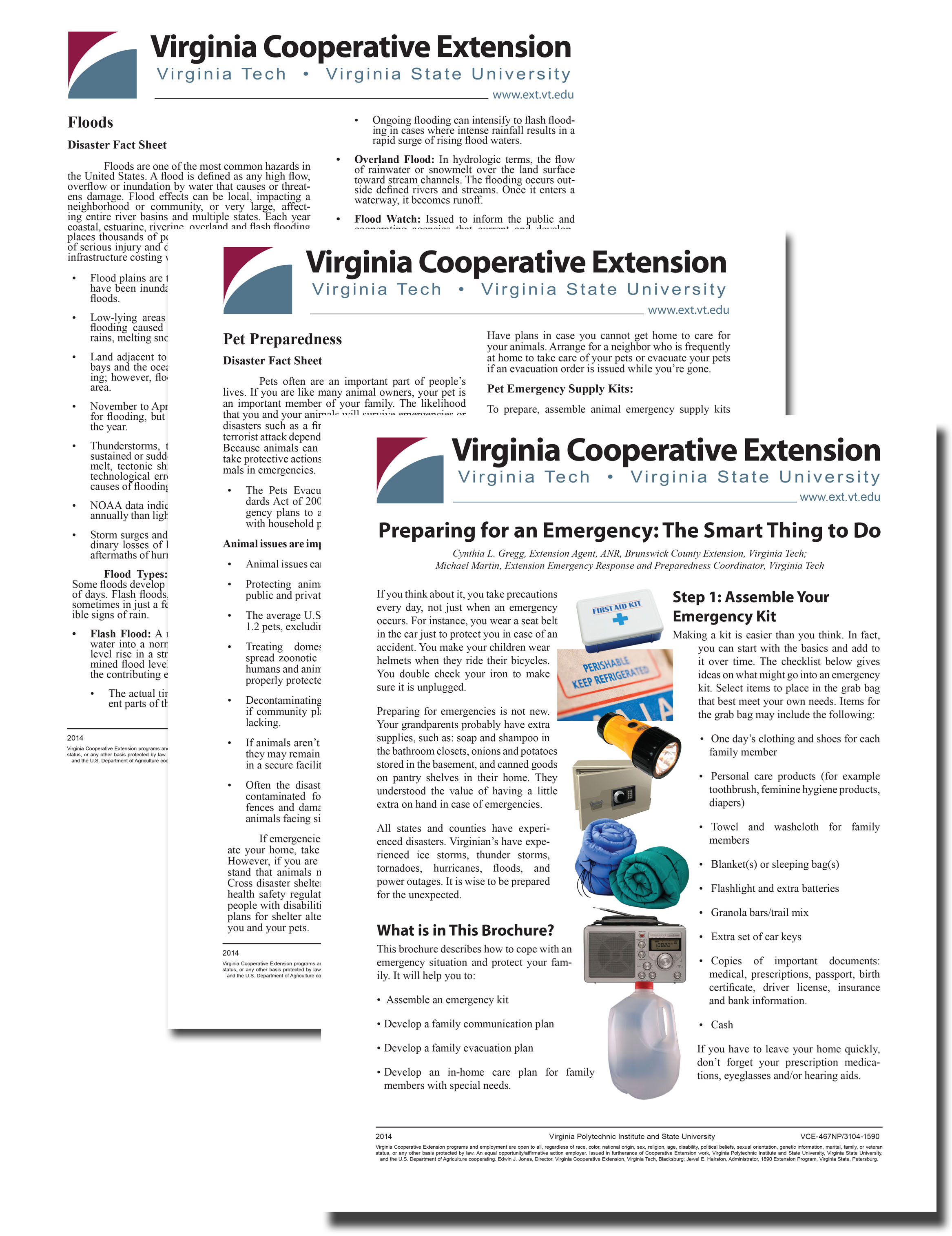Virginia Cooperative Extension offers assistance before and after disasters strike

Virginia is no stranger to natural disasters. In 2011 alone, Virginia experienced snowstorms, tornadoes, Hurricane Irene, and remnants of Tropical Storm Lee. These events caused losses of life and property and millions of dollars in damage. Even a summer thunderstorm can create unexpected emergency situations, from water contamination to power outages.
Virginia Cooperative Extension offers resources for planning for emergency situations, as well as resources for those in need when disaster strikes.
“It’s out of sight, out of mind,” said Michael Martin, Virginia Cooperative Extension emergency response and preparedness coordinator. “We haven’t had a tropical storm for a few years, so people don’t think about it.”
Hurricanes and tropical storms can reach Virginia from both the Atlantic and Gulf coasts. Hurricane season lasts through Nov. 30, and the winter storm season follows, so planning for emergency situations remains an important step in keeping yourself, your family, your property, and your pets safe, said Martin.
Martin encourages families to prepare an emergency kit. No matter what disasters could strike, people should have access to nonperishable food, extra clothing, cash, flashlights, and other items. More information can be found in the Extension publication Preparing for an Emergency: The Smart Thing to Do. Extension offers suggestions for what to include in your safety kits as well as where to store them. The Extension publication Pet Preparedness supplies tips on creating a pet safety kit and keeping your pet safe during an emergency.
When a community loses power, you may not know whether it will be out for a couple of hours or for multiple days, making access to nonperishable foods important. According to Martin, the time it takes for food to go bad in your refrigerator and freezer varies. Virginia Cooperative Extension provides online guidance on which foods are safe to eat and for how long after the electricity goes out, for both frozen and refrigerated foods.
Hurricanes and flooding can result in the need to evacuate. The Extension publication Floods provides information on how to evacuate — such as taking your emergency kits with you and avoiding walking through moving water — and what to do when you can re-enter your home.
No matter what the situation is, the Virginia Cooperative Extension Disaster Education Network has a variety of resources to help you prepare and recover from disasters; topics range from farm emergency management to the important personal documents to keep track of. The website also includes links to state and federal governmental resources and websites.
Martin advises Virginians to prepare before disasters strike, whether that means creating an emergency kit or downloading a weather app for your phone. “The more you can do in advance, the better,” Martin said.
Written by Samantha Hill, a senior in the College of Liberal Arts and Human Sciences and a communications intern for Virginia Cooperative Extension.




